Best Supplements for Joint Pain, According to Experts
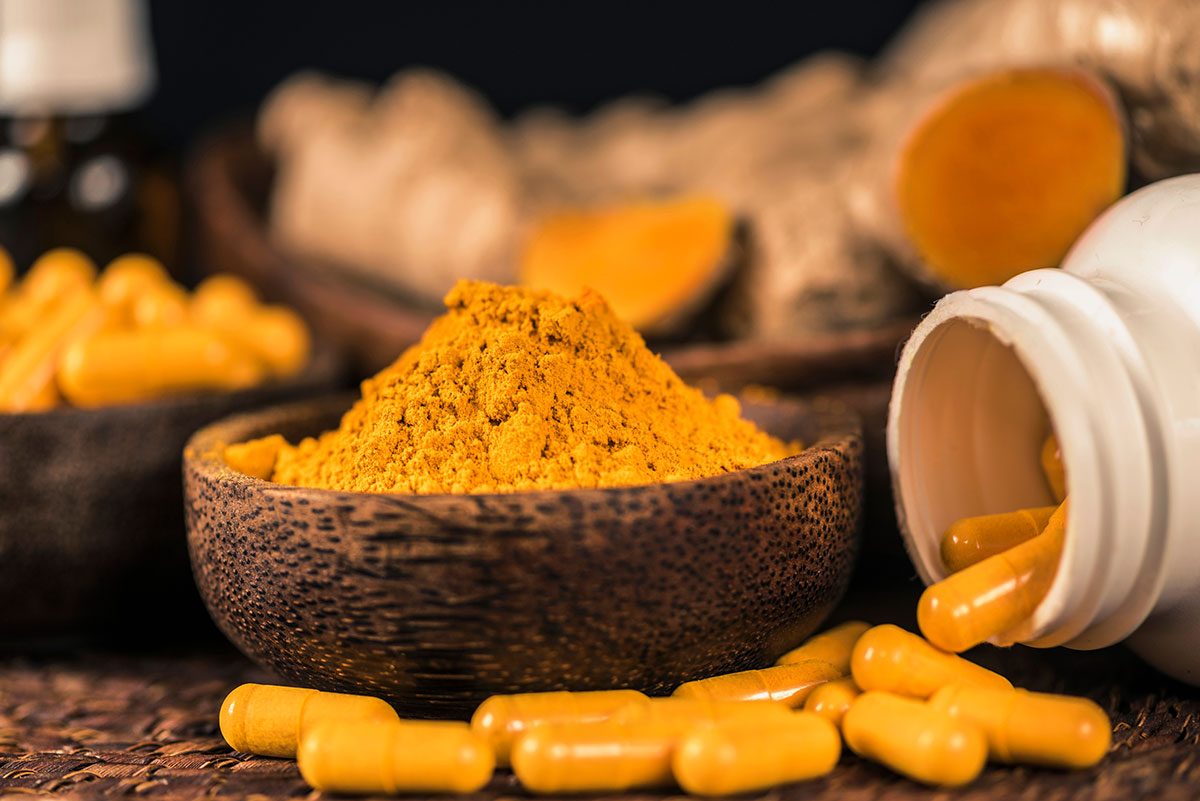
May is National Arthritis Awareness Month. More than 50 million Americans suffer from arthritis, making it the number one cause of disability in our country, according to The Arthritis Foundation. While there’s no cure, medications, physical therapy, and, in certain cases, surgery can help reduce discomfort associated with the condition.
There’s also a slew of supplements—supported by science—that can help ease your joint pain. Below are seven of the experts’ top picks. As always, consult with a trusted healthcare professional before adding a new supplement to your routine. Read on to learn about the best supplements for joint pain, and for more ways to support your joints, consider cutting out these 20 Foods That Can Make Arthritis Worse from your diet.
Glucosamine
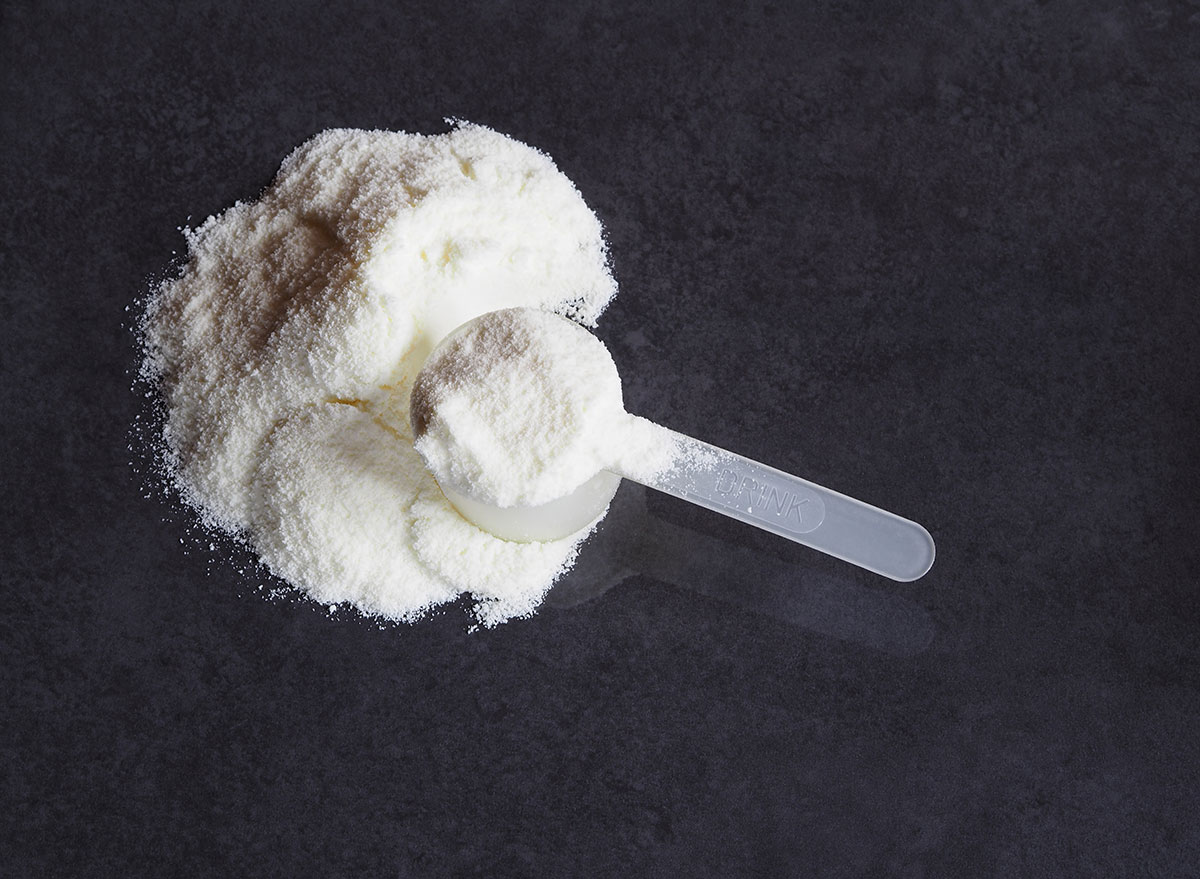
“The most popular supplement to ease joint pain is glucosamine, which is also the most researched supplement for arthritis,” says Louis Malinow, MD, ASH Certified Hypertension Specialist, and Medical Advisory Board Member at Persona Nutrition, a personalized vitamin program.
“Glucosamine, often used together with chondroitin, are both compounds found in cartilage. It is the degeneration and loss of cartilage that is the defining feature of arthritis and that process causes inflammation. The supplement combination both protects the cartilage producing cells and has anti-inflammatory properties,” says Malinow, referencing the 2016 MOVES study.
“Another study demonstrated that it preserved the thickness of the cartilage in the knee,” he continues, adding that there are two forms of glucosamine (sulfate and hydrochloride) and researchers tend to favor glucosamine sulfate at a dose of approximately 1,500 milligrams daily.
READ MORE: Best Supplements for Sleep, According to Experts
Curcumin

Derived from turmeric, a plant in the ginger family, curcumin is another popular, well-studied supplement for joint health. Curcumin is the compound that gives turmeric its distinctive yellow color, and the same properties that contribute to curcumin’s color also make it a powerful antioxidant.
“In numerous studies, individuals with joint stiffness and soreness reported improved joint function, a decrease in soreness, and an increase in ability to perform endurance exercise when taking curcumin supplements,” shares Joel Totoro, RD, and Director of Sports Science at Thorne.
“Study data also reveals that curcumin helps maintain a healthy balance of cytokines, the substances that regulate the body’s inflammatory response,” he says, adding that curcumin has also been shown to reduce post-exercise soreness. Malinow notes that some studies even demonstrate that curcumin is as effective as Ibuprofen in treating osteoarthritis.
When you’re selecting a supplement to buy, keep this in mind: “Because ordinary curcumin is not well absorbed, look for a curcumin supplement that is bound to a lipid carrier, such as the curcumin ingredient in Meriva, which has been shown to have an absorption rate up to 29 times higher than ordinary curcumin.” Malinow adds that it’s important to seek out a turmeric supplement that includes black pepper extract, which helps increase the bioavailability of the curcumin.
Boswellia
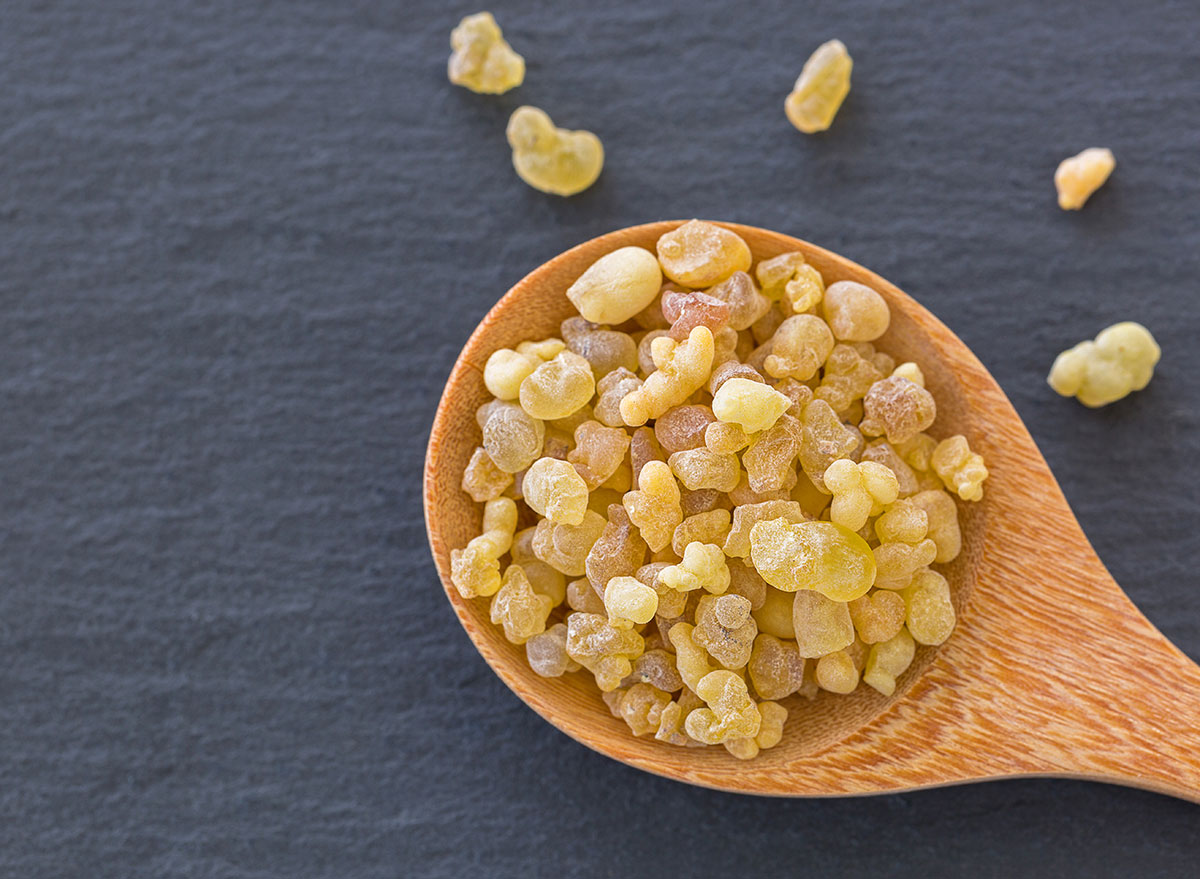
“Boswellia serrata, also known as Indian Frankincense, is a gum extracted from Boswellia trees native to Africa, India, and the Middle East. Boswellia extract has been used for many years in Eastern medicine and has grown in popularity for its beneficial inflammatory response property,” says Totoro.
“Boswellia has shown a proven ability to help maintain a healthy balance of the substances that control the body’s inflammatory response,” he continues, highlighting this review of Boswellia from last year that indicated that it can be effective in supporting the body’s response to stiffness, range of motion, and overall joint function in individuals who have long-term joint issues.
Omega-3
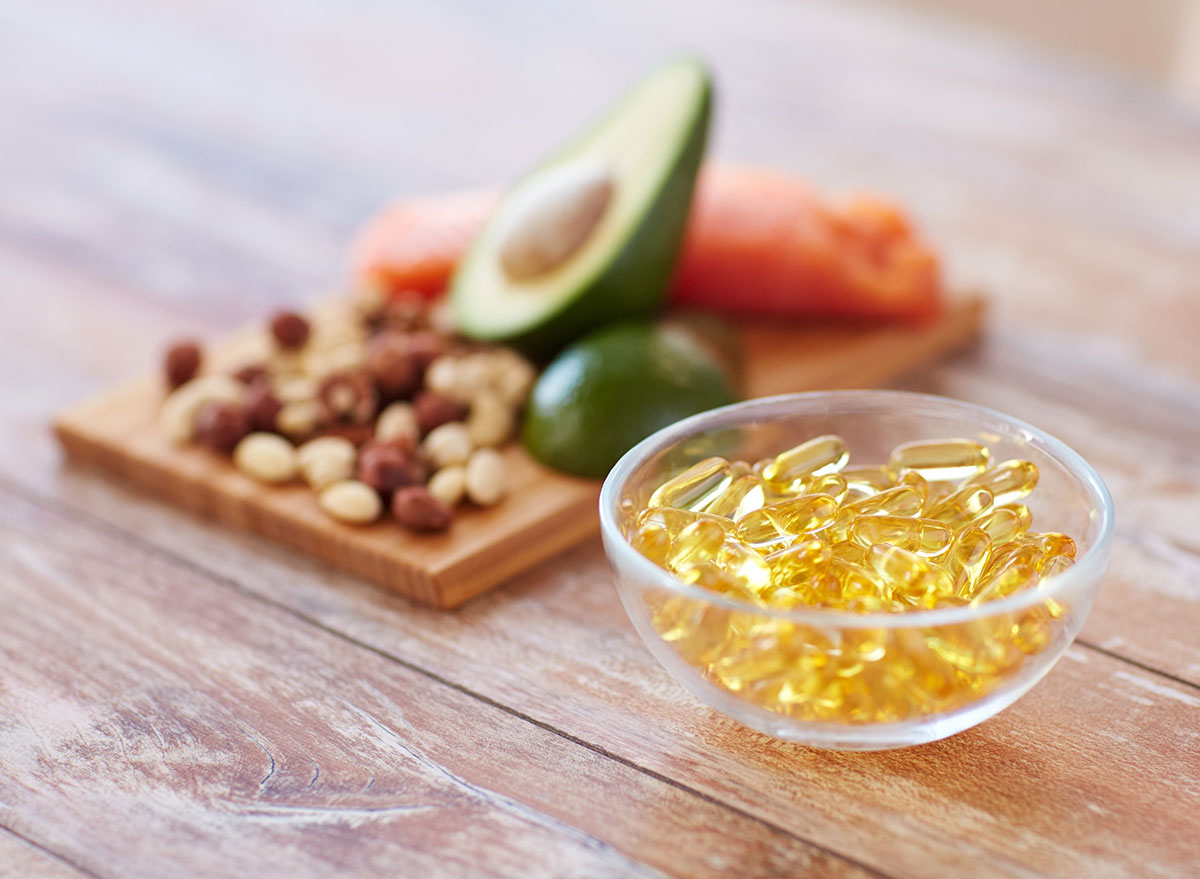
Oh, omega-3s, how we love you for your inflammation-fighting and heart-healthy superpowers. Liana Casusi, MD, a consultant for Oh So Spotless, shares an overview of omega-3s prowess:
“Omega-3 polyunsaturated fatty acids have a variety of functions at the cellular level. These include structural maintenance, signaling, membrane fluidity, regulation of blood pressure, and reduction of inflammation, among others,” she says, noting that omega-3 food sources include fatty fish, flaxseeds, pumpkin seeds, and walnuts.
“A study on athletes revealed that three grams of omega-3 supplementation daily helped reduce the development and severity of arthritis. During exercise, our bodies are subjected to transient inflammation, resulting in a release of chemical mediators called reactive oxygen species (ROS) which, if unregulated, may cause tissue damage,” she explains. “Omega-3 has been shown to reduce the damage done by these harmful substances by reducing joint inflammation and lessening pain, discomfort, and swelling.”
Important to note: A potential side effect of omega-3 supplements is a change in your blood’s platelet function, which may delay wound healing. “If you are taking anti-inflammatory medications, have high blood pressure, or any other medical conditions, it is important to talk to your doctor before taking this supplement,” Dr. Casusi stresses.
Vitamin D

First, a little vitamin D overview: “Vitamin D is a hormone that maintains calcium homeostasis in the bones and regulates the immune system. It is synthesized in our skin with the help of ultraviolet irradiation, or sunlight exposure,” shares Dr. Casusi.
“Vitamin D deficiency has been implicated in rheumatoid arthritis. Studies have shown that subsets of patients with the disease have decreased levels of vitamin D, and this is also linked to the severity of the disease,” she continues, explaining that people with low levels of vitamin D are therefore more likely to develop arthritis and may have severe swelling, joint pains, and stiffness.
When it comes to vitamin D supplements, they are generally recommended for people who do not have enough sun exposure, or unable to meet the dietary requirements by food intake like older individuals and vegetarians, says Dr. Casusi, noting that excessive levels of vitamin D may cause toxicity so always follow the prescribed dosage by your medical practitioner before taking the supplement.
Related: Surprising Side Effects of Taking Vitamin D Supplements, Says Science
Burdock
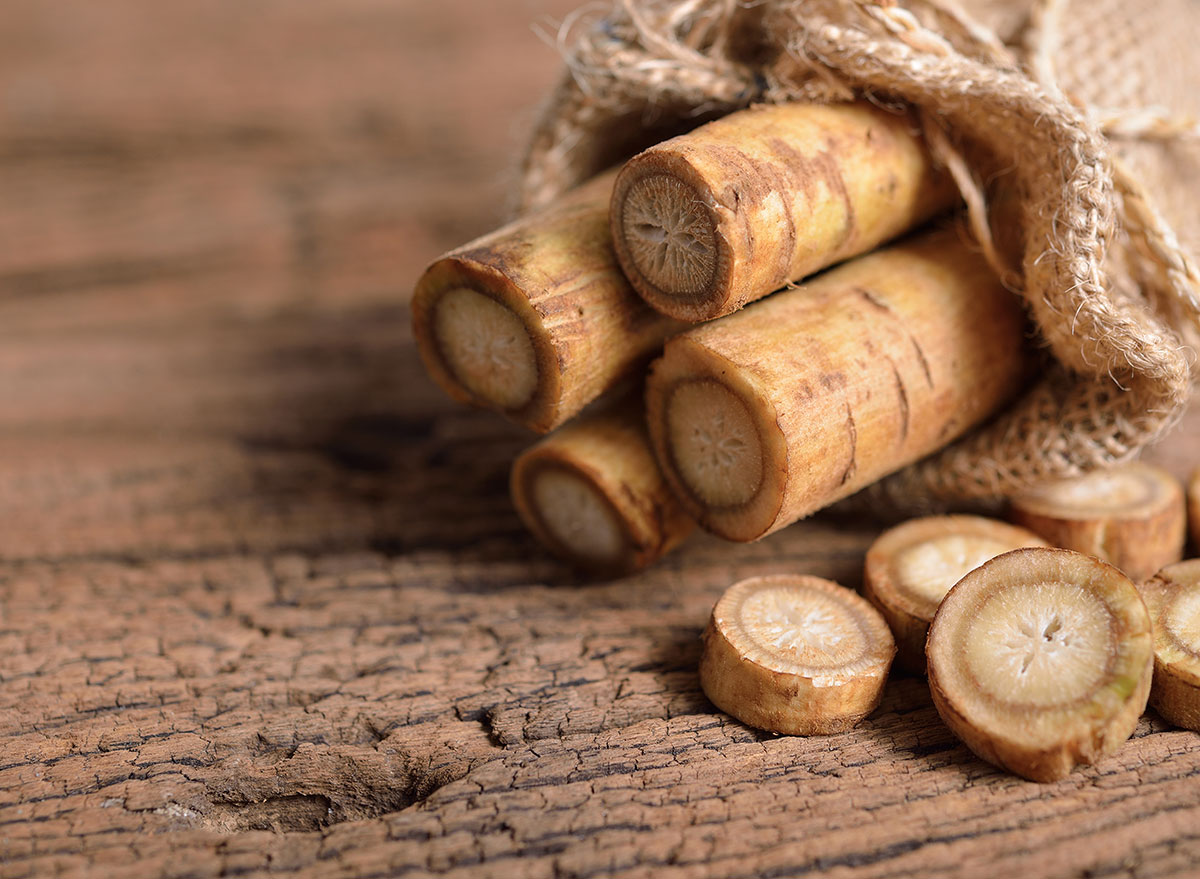
Trista Best, MPH, RD, LDN, a registered dietitian at Balance One chimes in on this vegetable that’s native to Asia and Europe: “Burdock is a common plant found worldwide and used as a food source or in supplement form. It is rich in antioxidants and plant compounds that are highly anti-inflammatory,” she says, referencing this study on burdock root tea on patients with osteoarthrosis in their knees.
“Because of its anti-inflammatory nature, it is used to treat or mitigate a host of conditions in the body. Some of the most popular uses include gastrointestinal conditions, skin problems, and joint pain and discomfort from swelling,” she added regarding the potent plant.
Methylsulfonylmethane
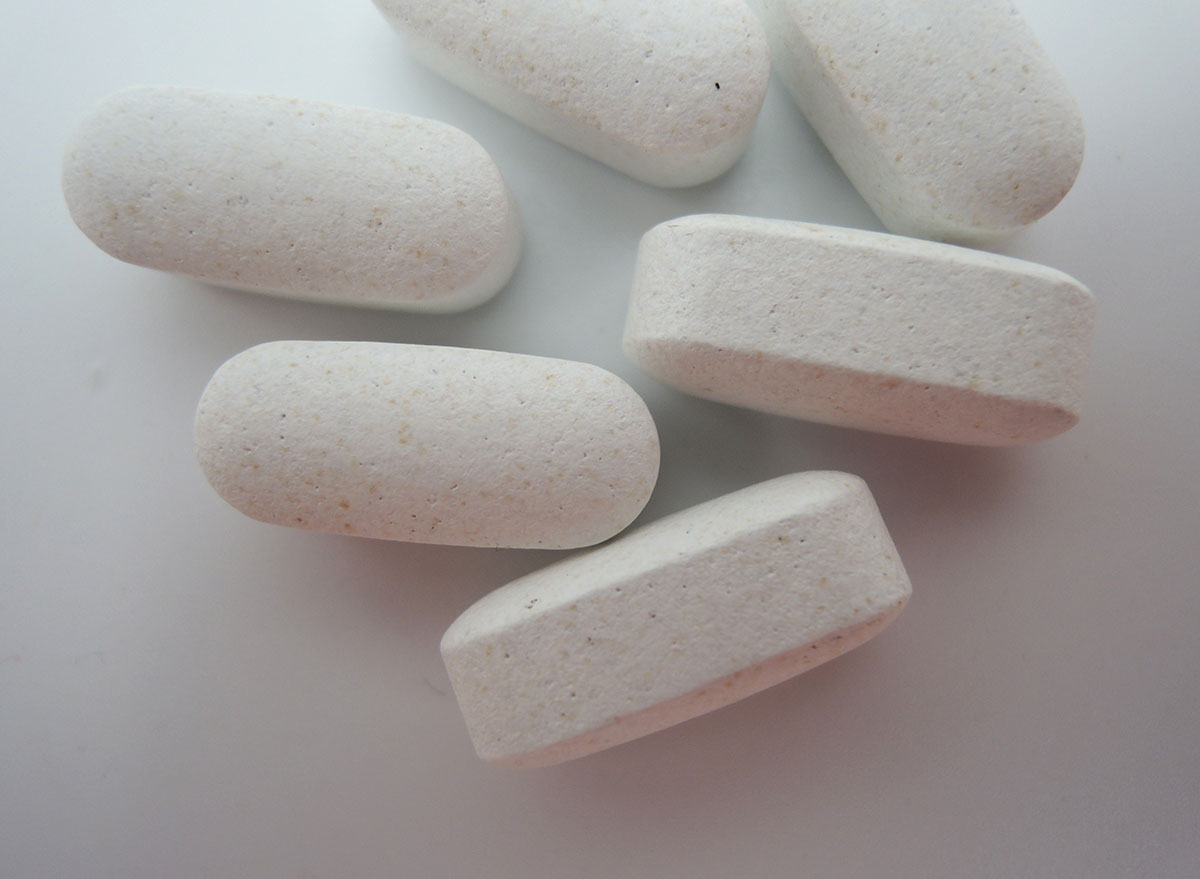
Colloquially referred to as MSM, there’s some evidence that joint pain improves with this naturally occurring compound used in complementary and alternative medicine. “This popular supplement can be taken individually or as part of a proprietary blend in some joint supplements. It is commonly taken on its own to address a wide variety of conditions, but it’s best known for its anti-inflammatory properties and its role in making connective tissues,” comments Best.
“Joint pain is rooted in both of these issues whether the direct cause is arthritis, joint degeneration, or chronic inflammation, making MSM an ideal supplement to add to any joint health regimen. MSM is a sulfuric compound and the body requires sulfur to make connective tissue. In some forms of arthritis and joint degenerative conditions, the connective tissue begins to wear away which exacerbates the condition and pain. This supplement can help to stall and even reverse this issue at the root cause.”
And for more, check out The 40 Best Foods That Fight Arthritis.








